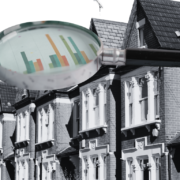Britain has defied gloomy predictions for a long recession with the International Monetary Fund now joining the chorus of revisions.
The surprising resilience of companies and consumers have helped buck the forecasts made amid the stormy financial weather prompted by the Truss/Kwarteng mini-Budget.
In the Autumn interest rates were forecast to shoot up to above 6% and an energy crisis in Europe was still widely feared.
But as gas prices have retreated, the UK government has repaired its financial credibility, and consumers have shown hardiness amid rising prices, prospects for the UK are now brighter.
However, with the latest data on the services sector from the closely watched PMI Index showing continued strength, the Bank of England looks set to push ahead with another rate rise, to try and cool still steamy inflation.
This is a time when better news about the economy could end up being bad news for personal and corporate finances, as our resilience may end up making borrowing more expensive to stop prices rises further.
High consumer prices are fueling wage demands and risk embedding the price spiral in the economy, and this is evident in the PMI numbers which showed that providers of services are suffering the steepest rises in costs for three months.
It’s important to stress that overall, this latest snapshot on the economy still shows it’s still struggling to find a growth spurt with manufacturing continuing to contract.
It looks increasingly likely that the Bank of England policymakers will vote to raise rates again when they meet next month by another 0.25% to 4.75%.

























Comments